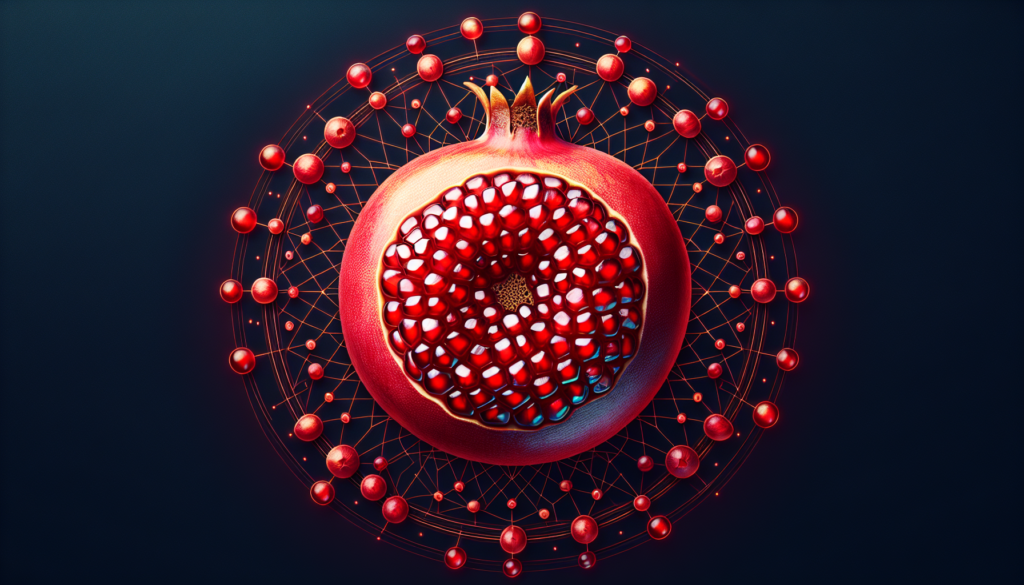So you’ve been hitting the gym hard, pushing yourself to the limit, and now you’re looking for the best fitness supplements to help speed up your muscle recovery. Well, look no further! This article has got you covered with a curated list of the top supplements that can aid in repairing those muscles and getting you back in the game faster than ever before. From protein powders to amino acids and everything in between, we’ve done the research so you don’t have to. Say goodbye to those post-workout soreness and hello to faster muscle recovery with these game-changing supplements.

Protein Supplements
When it comes to muscle recovery and growth, protein is an essential macronutrient that you can’t afford to overlook. Protein supplements, in particular, can be a convenient and effective way to ensure you’re getting enough protein to support your fitness goals. There are several types of protein supplements available, each with its own unique benefits. Let’s take a closer look at three popular options: whey protein, casein protein, and pea protein.
Whey Protein
Whey protein is one of the most popular protein supplements on the market, and for good reason. Derived from milk, whey protein is a complete protein that contains all nine essential amino acids. It is quickly absorbed by the body, making it an ideal choice for post-workout nutrition when your muscles need a rapid influx of amino acids to kickstart the recovery process. Whey protein is also rich in branched-chain amino acids (BCAAs), particularly leucine, which plays a vital role in muscle protein synthesis.
Casein Protein
Unlike whey protein, casein protein is a slow-digesting protein that forms a gel-like substance in the stomach. This slow release makes it an excellent option for those looking for a sustained protein release throughout the day or overnight. Casein protein is often recommended before bedtime as it provides a steady supply of amino acids to your muscles while you sleep, promoting muscle recovery and growth. Additionally, casein protein has a high glutamine content, which can aid in muscle recovery and immune support.
Pea Protein
For those following a plant-based or dairy-free diet, pea protein is an excellent alternative to traditional animal-based protein supplements. Derived from yellow peas, pea protein is rich in essential amino acids, particularly arginine and lysine. It is easily digestible and can be a great option for those with sensitive stomachs or digestive issues. Pea protein also contains a high amount of BCAAs, making it an effective supplement for muscle recovery and growth, regardless of dietary preferences.
BCAAs
BCAAs, or branched-chain amino acids, are a group of three essential amino acids: leucine, isoleucine, and valine. These amino acids play a critical role in muscle protein synthesis and muscle recovery. While BCAAs can be found naturally in protein-rich foods, supplementing with BCAAs can provide additional benefits, especially for those engaging in intense workouts or looking to optimize their muscle recovery.
Leucine
Leucine is perhaps the most important amino acid when it comes to muscle protein synthesis. It activates a pathway in the body known as the mTOR pathway, which stimulates muscle protein synthesis and muscle growth. Consuming a sufficient amount of leucine, whether through food or supplements, can help kickstart the muscle recovery process and maximize the effects of your workouts.
Isoleucine
Isoleucine is another essential branched-chain amino acid that plays a key role in muscle protein synthesis and energy production. It is involved in glucose uptake and the synthesis of hemoglobin, the protein responsible for transporting oxygen throughout the body. Supplementing with isoleucine can help support muscle recovery, enhance endurance, and improve recovery from intense exercise.
Valine
Valine is the third essential branched-chain amino acid, and it works alongside leucine and isoleucine to support muscle growth and recovery. Valine is important for maintaining nitrogen balance in the body, which is crucial for muscle protein synthesis. It also plays a role in energy production during exercise, making it a valuable addition to any fitness supplement regimen.
Creatine
Creatine is a naturally occurring compound found in small amounts in certain foods but is also commonly taken as a supplement to enhance athletic performance and support muscle recovery. It plays a crucial role in the production of ATP, the body’s primary source of energy during high-intensity exercise. There are several forms of creatine available, including creatine monohydrate, creatine HCL, and micronized creatine.
Creatine Monohydrate
Creatine monohydrate is the most studied and widely used form of creatine. It has been shown to increase strength, power, and muscle mass, making it a popular choice among athletes and fitness enthusiasts. Creatine monohydrate is also cost-effective and suitable for individuals of all fitness levels. It is typically taken in a loading phase followed by a maintenance phase to ensure optimal muscle saturation.
Creatine HCL
Creatine HCL, or hydrochloride, is a more soluble form of creatine that has gained popularity in recent years. It is believed to have a higher absorption rate and require smaller doses compared to creatine monohydrate. While more research is needed to fully understand the potential benefits of creatine HCL, initial studies suggest it may be just as effective as creatine monohydrate in enhancing strength and muscle recovery.
Micronized Creatine
Micronized creatine refers to creatine monohydrate that has undergone a micronization process, resulting in smaller particle sizes. This process improves the solubility and mixability of creatine, making it easier to dissolve in water or other beverages. Micronized creatine is a popular choice for those who prefer a smoother texture and better flavor when consuming creatine supplements.
Glutamine
Glutamine is a conditionally essential amino acid that plays a crucial role in muscle recovery and immune health. During intense exercise, glutamine levels in the body can become depleted, leading to muscle breakdown and weakened immune function. Supplementing with glutamine can help replenish these levels, promote muscle recovery, and support overall immune health. Glutamine is particularly beneficial for individuals engaging in endurance or high-intensity exercise.
While the body can produce glutamine on its own, intense exercise can increase the demand for this amino acid beyond the body’s production capacity. Supplementing with glutamine can ensure an adequate supply is available to support optimal muscle recovery and immune function.

Beta-Alanine
Beta-alanine is a non-essential amino acid that is naturally produced in the body and also found in certain foods. It is often used as a supplement to improve exercise performance, enhance muscle strength, and delay fatigue during high-intensity workouts. Beta-alanine works by increasing the levels of carnosine in the muscles, which helps buffer lactic acid accumulation and reduce the onset of muscle fatigue. This allows you to push harder, for longer, resulting in improved muscle recovery and performance gains.
Omega-3 Fatty Acids
Omega-3 fatty acids are a type of polyunsaturated fat that is essential for overall health and well-being. They cannot be produced by the body and must be obtained through diet or supplementation. Omega-3 fatty acids, particularly EPA (eicosapentaenoic acid) and DHA (docosahexaenoic acid), have been shown to provide numerous benefits for muscle recovery and overall fitness.
Omega-3 fatty acids possess anti-inflammatory properties, which can help reduce exercise-induced inflammation and promote faster recovery. They also play a role in maintaining optimal heart health, reducing blood pressure, and improving joint mobility. Incorporating omega-3 fatty acid supplements, such as fish oil, into your fitness routine can support optimal muscle recovery and overall well-being.
Multi-Vitamins
While not specifically targeted towards muscle recovery, multi-vitamins play a crucial role in overall health and can indirectly support your fitness goals. Intense exercise can place additional stress on the body, depleting nutrient stores and increasing the demand for vitamins and minerals. Taking a high-quality multi-vitamin can help ensure you’re getting all the essential nutrients needed to support muscle recovery, immune function, and overall well-being.
Turmeric
Turmeric is a bright yellow spice commonly used in Indian cuisine, and it contains an active compound called curcumin. Curcumin has potent anti-inflammatory and antioxidant properties, making it a valuable supplement for muscle recovery. It can help reduce exercise-induced inflammation, alleviate muscle soreness, and promote faster recovery between workouts. Turmeric supplements, standardized for curcumin content, can provide a convenient and effective way to incorporate this powerful ingredient into your fitness routine.
Magnesium
Magnesium is a mineral that is involved in numerous biochemical reactions in the body, including protein synthesis, muscle function, and energy production. It plays a crucial role in muscle relaxation and contraction, making it an essential nutrient for muscle recovery and performance. Supplementing with magnesium can help support muscle relaxation, reduce muscle cramps, and improve overall muscle recovery. It is especially beneficial for individuals engaging in intense exercise or those with low magnesium levels.
Vitamin D
Vitamin D, often referred to as the “sunshine vitamin,” is a crucial nutrient for overall health and well-being. It plays a vital role in calcium absorption, bone health, immune function, and muscle strength. Deficiency in vitamin D can lead to decreased muscle strength and impaired immune function, making it essential to maintain optimal levels for muscle recovery. While sun exposure can help the body produce vitamin D, supplementation may be necessary, particularly for individuals with limited sun exposure or those living in northern latitudes. Vitamin D supplements can help support muscle recovery, improve overall health, and ensure you’re getting enough of this important nutrient.
In conclusion, there are several fitness supplements available that can aid in muscle recovery and support your fitness goals. Protein supplements, such as whey protein, casein protein, and pea protein, can provide essential amino acids to promote muscle repair and growth. BCAAs, including leucine, isoleucine, and valine, play a crucial role in muscle protein synthesis and recovery. Creatine supplements, such as creatine monohydrate, creatine HCL, and micronized creatine, can enhance athletic performance and support muscle recovery. Other supplements, like glutamine, beta-alanine, omega-3 fatty acids, multi-vitamins, turmeric, magnesium, and vitamin D, offer their unique benefits in promoting muscle recovery and overall well-being. As with any supplement, it is essential to consult with a healthcare professional or registered dietitian before adding them to your fitness regimen to ensure they are suitable for your specific needs and goals. Remember, supplements are just that, supplements to a well-balanced diet and regular exercise routine.
